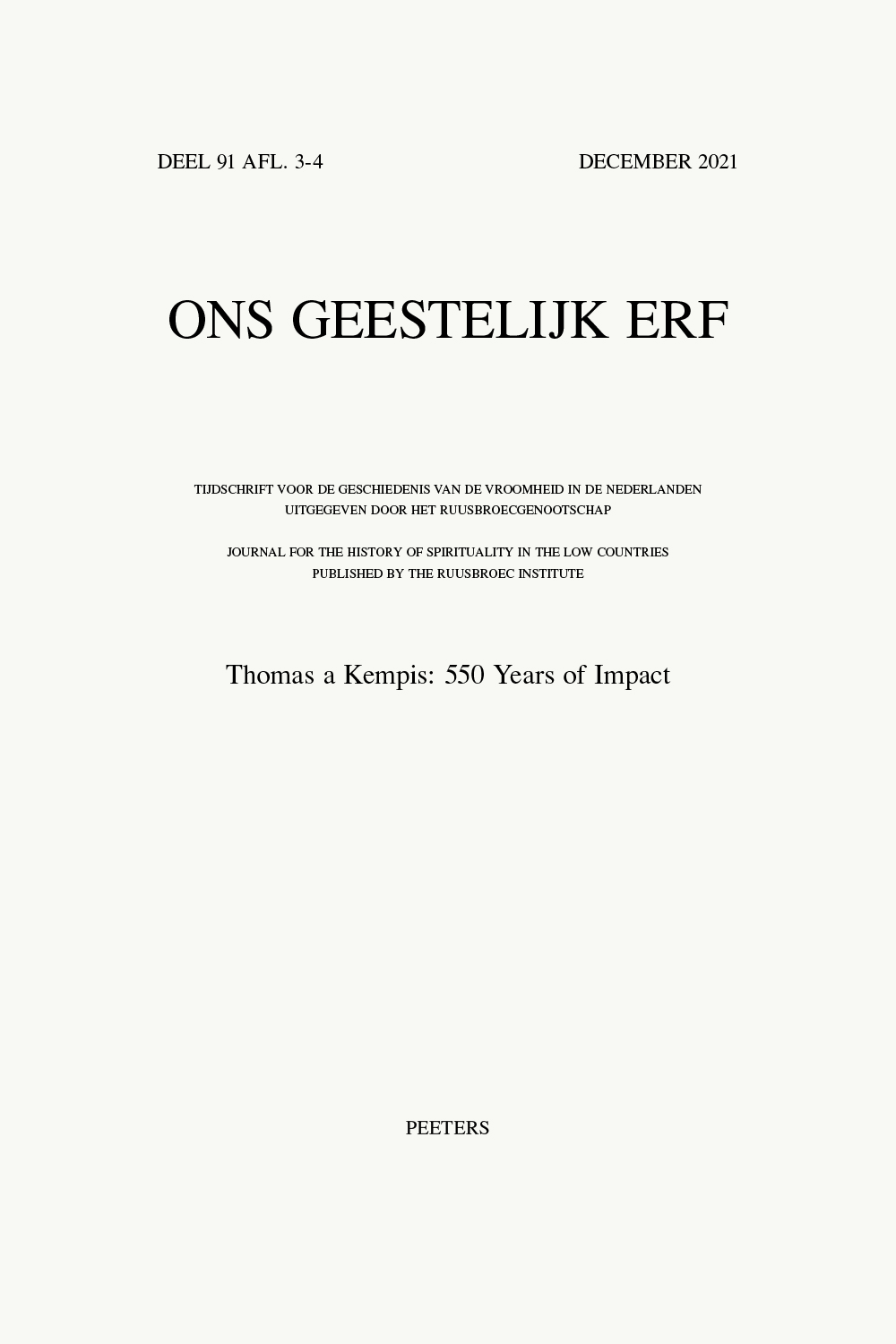 previous article in this issue previous article in this issue | next article in this issue  |

Preview first page |
Document Details : Title: Devotion as Weapon against Anabaptists, Lutherans and Other 'Heretics' Subtitle: The 'Heilige Stede' (Holy Stead) in Amsterdam from c. 1515 - c. 1550 Author(s): CASPERS, Charles M.A. Journal: Ons Geestelijk Erf Volume: 87 Issue: 1-2 Date: 2016 Pages: 75-90 DOI: 10.2143/OGE.87.1.3200540 Abstract : An important landmark in the history of the Reformation in the Netherlands is the Epistola christiana admodum, better known under the title Letter on the Lord’s Supper, written by Cornelis Henricxz Hoen († 1524-1525), a lawyer at the Court of Holland in The Hague. Hoen argued among other things that there could be no such thing as transubstantiation. On the contrary, he contended that it was the devil who wished people to believe that the Eucharistic bread became God himself. If people were to give up this form of idolatry, Hoen averred, very little would remain of the church of Rome. Sympathizers of Hoen, who have become known to history as Sacramentarians on account of their criticism of this Roman doctrine, would later, in the early 1530s, join the Anabaptist movement. In Amsterdam, members of the city government hardly paid any attention to these innovative ideas, but these were cause for considerable concern among the intellectual élite. Thus, the humanistic Roman Catholic priest Alardus van Amsterdam feared the day when the followers of Luther, Karlstadt, Oecolampadius, and Zwingli would outnumber Roman Catholic inhabitants. Nevertheless, he drew courage from the conviction that the inhabitants of Amsterdam were intensely devoted to the chapel of the ‘Holy Stead’ (‘Heilige Stede’), where a miraculously saved host was venerated: they would surely defend their faith. In 1535, an unsuccessful coup, devised by Anabaptists, made it perfectly clear that such fears were certainly realistic. As a result, the devotion to the miraculous host and to the sacrament of the Eucharist in general was actively promoted by both ecclesiastical and secular local authorities, with the encouragement of the sovereign ruler. The intense solidarity of the local populace with the Holy Stead certainly plays an important part in explaining why the city of Amsterdam joined the Insurrection against Sovereign Ruler Philp II at a comparatively late date, in 1578, as last of the Dutch cities. |
|


